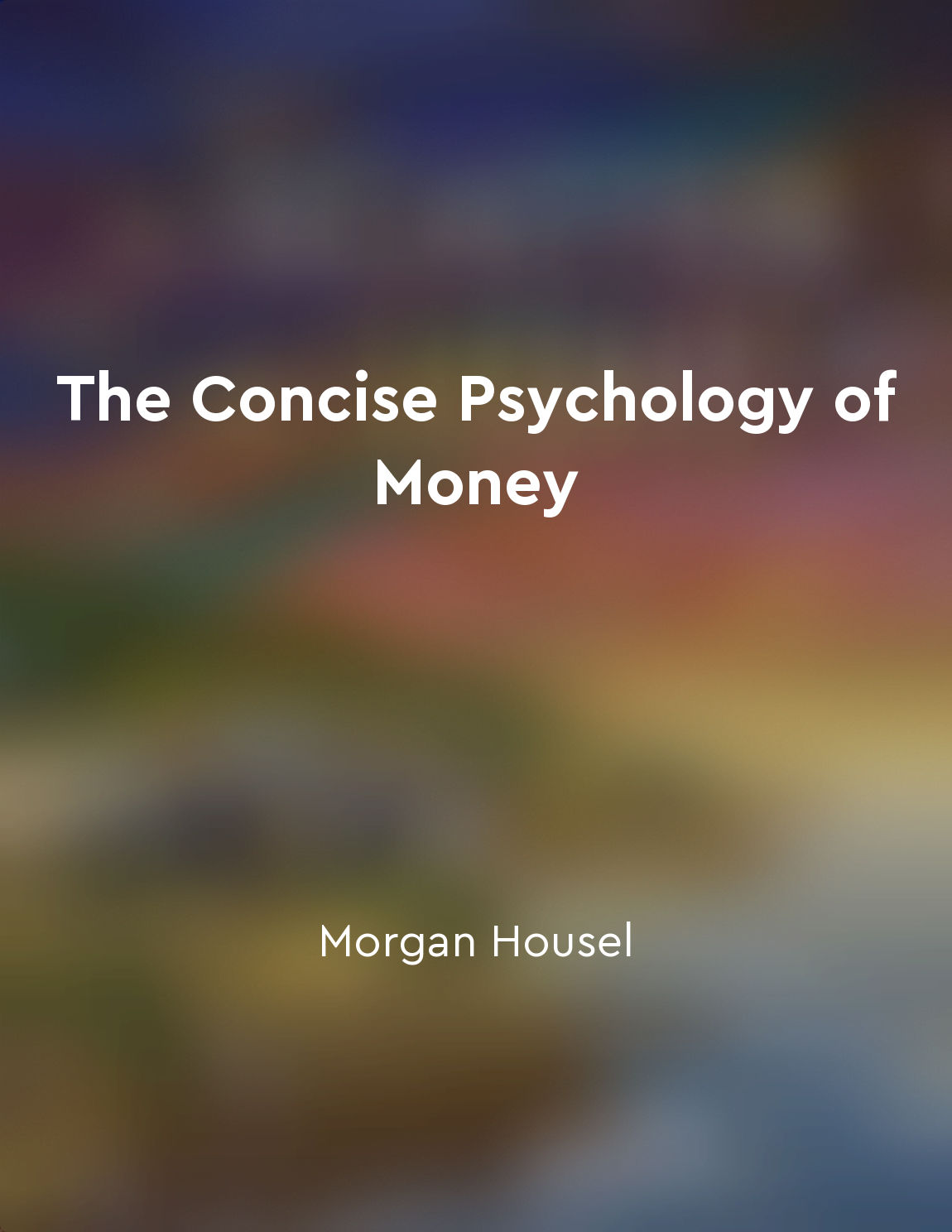Uncertainty can lead to hoarding from "summary" of The General Theory of Employment, Interest, and Money by John Maynard Keynes
Uncertainty, which arises from the lack of confidence in the future, can have a significant impact on individuals' behavior. When people are unsure about what lies ahead, they tend to become cautious and conservative in their actions. This uncertainty can manifest itself in various ways, one of which is hoarding. Hoarding occurs when individuals start to accumulate cash or other liquid assets, rather than spending or investing them. This behavior stems from a desire to safeguard oneself against potential risks or losses that may occur in the future. In times of uncertainty, people may prefer to hold onto their resources as a form of protection, rather than putting them at risk through consumption or investment. The tendency to hoard can have adverse effects on the economy as a whole. When a large number of people start hoarding their resources, the overall level of consumption and investment in the economy decreases. This reduction in spending can lead to a decline in aggregate demand, which in turn can result in lower levels of production and employment. Moreover, hoarding can exacerbate the problem of uncertainty in the economy. As more people start hoarding, it can create a self-reinforcing cycle of pessimism and reduced economic activity. The lack of spending and investment can further increase uncertainty, leading to even more hoarding and a further decline in economic activity. To break this vicious cycle, it is crucial for policymakers to address the root causes of uncertainty in the economy. By providing clarity and confidence about the future through appropriate measures, such as effective communication, policy interventions, and economic stimulus, policymakers can help alleviate the tendency towards hoarding and promote economic growth. In summary, uncertainty can indeed lead to hoarding, as individuals seek to protect themselves against risks and losses in uncertain times. This behavior can have negative consequences for the economy, as it can reduce aggregate demand and exacerbate the problem of uncertainty. Policymakers play a crucial role in addressing uncertainty and promoting confidence in the economy to prevent excessive hoarding and support economic growth.Similar Posts
Sustainable development
The problem of the industrial and commercial future of a country has been raised, dealt with, and disposed of in an extraordina...

Free to Choose is a powerful argument for liberty
The central idea of the book is that individuals should have the freedom to make choices about their own lives. This freedom is...
Our upbringing shapes our money mindset
As we journey through life, our relationship with money is significantly influenced by our upbringing. The environment in which...

Our financial goals should be aligned with our values and priorities
Our values and priorities shape the decisions we make in every aspect of our lives, including our finances. When it comes to se...
Control impulsive spending
One of the key aspects of managing your finances effectively is being able to control impulsive spending. This means resisting ...
Set clear financial goals to achieve prosperity
To achieve prosperity, it is crucial to have clear financial goals. These goals serve as a roadmap to guide you towards financi...

Endowment effect affects value perceptions
The Endowment effect is a psychological phenomenon that influences how people perceive the value of things they own. This effec...
Loss aversion is a key concept in behavioral finance
Loss aversion, a central concept in behavioral finance, refers to the idea that individuals feel the pain of losses more intens...
Financial intermediation facilitates efficient allocation of capital
Financial intermediation plays a crucial role in the economy by connecting savers and borrowers. When individuals have excess f...
Government can smooth business cycles
The idea that the government can smooth business cycles is a key concept in economics. Business cycles, which refer to the fluc...
